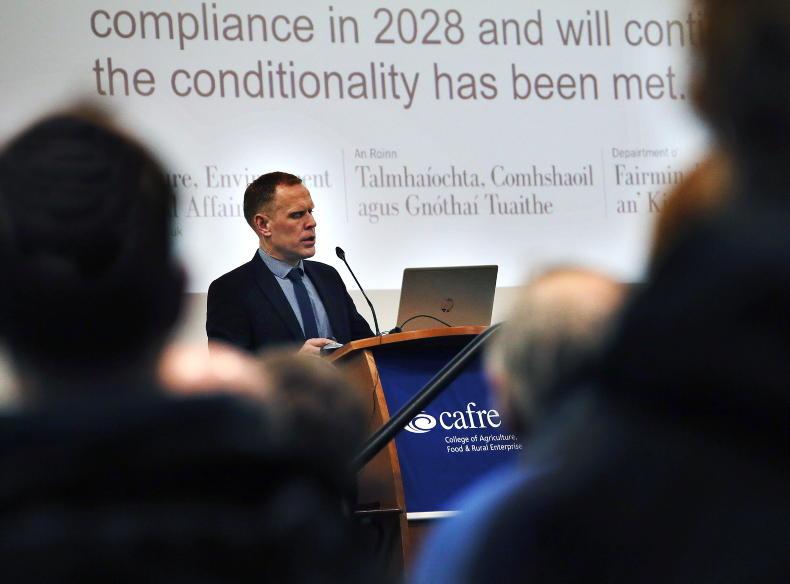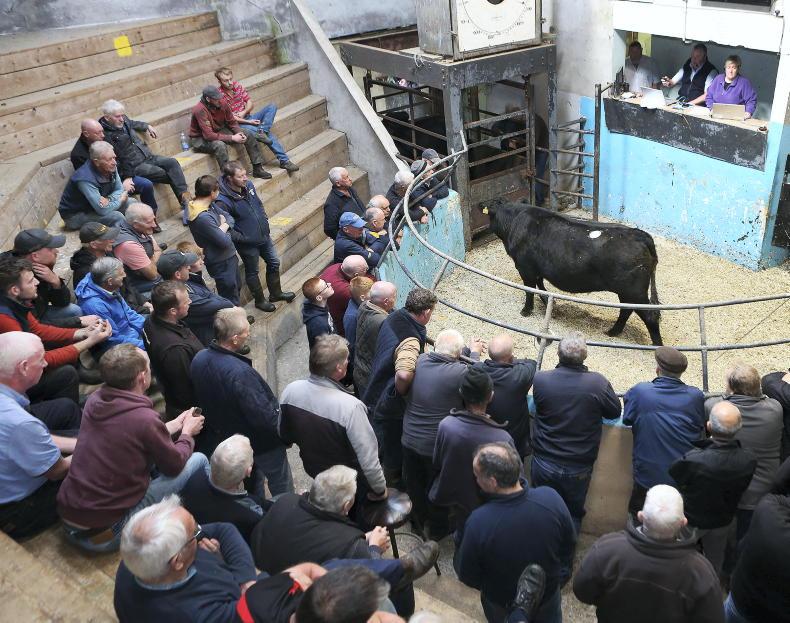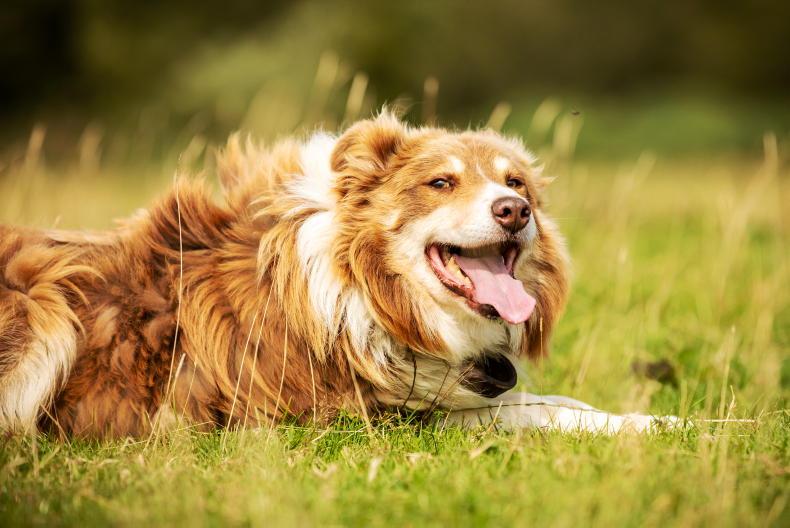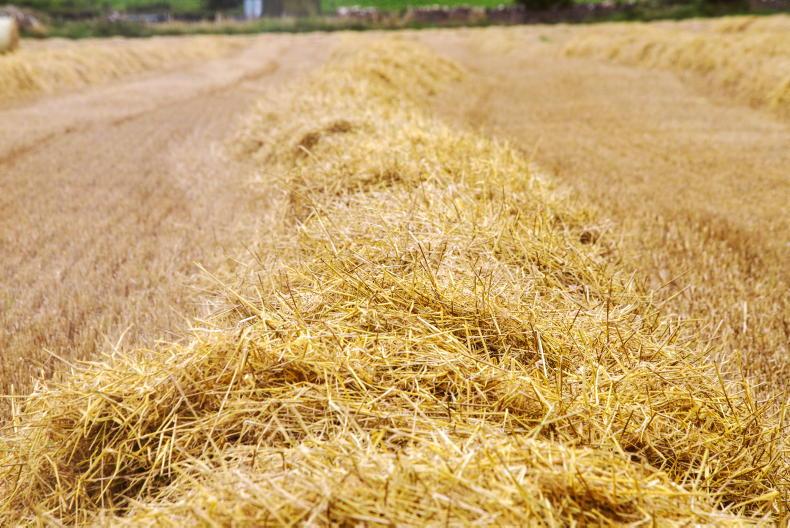McConalogue welcomes progress on beef PGI
Irish Minister for Agriculture Charlie McConalogue has welcomed the European Commission’s launch of the next phase of consultation on the protected geographical indicator (PGI) application for Irish Grass Fed Beef.
There is now a three-month window when other member states and third countries with a legitimate interest can make submissions on the application.
It is expected that NI will use this opportunity to argue that it should be included in the scope of the PGI.
“I am keen to see the PGI application extended on an all-island basis as I believe it can be beneficial to all our beef farmers,” said Minister McConalogue.
500 farmers on latest EFS tranche
Around 500 farmers are to be accepted onto the fifth phase of the Environmental Farming Scheme (EFS).
In May 2021, DAERA received 615 applications for the latest tranche of EFS higher level, and 211 applications were received for the wider level in September.
EFS higher level is for environmentally designated land, whereas the wider scheme is available for all types of farmland in NI.
“We are confident that most farmers who applied for EFS Wider Tranche 5, and provided the required information, can expect to receive their offers before the Christmas holidays,” said Minister for Agriculture Edwin Poots.
“They will then have 21 days to confirm their acceptance of the five-year agreement. The rest will be released in January 2022,” he added.
The latest phase of EFS is estimated to cost £14m and £63m has been spent in the previous four tranches of the scheme.
USA to lift ban on
lamb imports
The US is to lift a long-standing ban on lamb imports from both the UK and the EU.
The United States Department of Agriculture (USDA) confirmed that the amended “small ruminant rule” will come into force on 3 January 2022. The import ban was originally introduced in 1989 amid concerns about scrapie and BSE.
For local abattoirs to begin exports, a veterinary agreement first needs to be reached between officials from the UK and US governments, and then individual factories need to be approved by USDA inspectors.
However, lamb consumption in the US is extremely low when compared to other meats, according to data compiled by market analysis firm Statista.
It shows that the average American consumes 0.5kg of lamb per year, compared to 51kg of poultry, 27kg of beef and 23kg of pork.
NSA questions tree planting ambition
The damage done by storms over the last week raises questions for the UK government around its tree planting ambitions the National Sheep Association (NSA) has suggested.
With thousands of trees razed to the ground, adding to the devastation caused by Ash dieback, NSA chief executive Phil Stocker said he wouldn’t be surprised if the UK is going backwards with tree numbers, not forwards.
“With evidence that grassland can be every bit as good as trees for capturing carbon in the soil, these increasingly common tree incidents suggest to me that we really should learn to appreciate our grasslands,” he said.
He pointed out that grass rarely experiences diseases, is resistant to pests and storm damage, and survives floods and drought, while at the same time producing nutritious red meat.
English roll out new farm sustainability scheme
A new Sustainable Farming Incentive (SFI) scheme is to open for English farmers in 2022 as part of UK government plans to overhaul the system of agricultural support and pay farmers for public goods.
Already in 2021 all English farmers have seen at least 5% taken off their basic payment scheme (BPS). By 2024 all payments will be cut by 50%, with the last BPS money paid in 2027.
That BPS money is being re-directed into other schemes including the SFI. It is the first of three new environmental land management schemes, with nature recovery and land recovery options to be rolled out from 2023 onwards.
Three standards will be available in the early rollout of SFI across arable, improved grassland and moorland, with more standards introduced over the next three years ahead of full range being available from 2025.
In 2022, the SFI will also fund a yearly farm visit from a vet or vet-led team to undertake an animal health and welfare review across the farm.
Vet bodies raise NI Protocol concerns
The UK National Office for Animal Health (NOAH) along with Animal Health Europe, a European body representing animal medicine manufacturers, have highlighted concerns about disruption to veterinary medicine supply due to the NI Protocol.
In a joint statement, the two organisations said that they have put forward solutions to avoid supply issues, but without changes to the NI Protocol the availability of veterinary medicines could be affected.
“Our main concern is that our sector does not get side-lined within the complexities of this situation. The challenges faced by many sectors extend also to the animal health sector and this should not be overlooked,” said Roxane Feller from Animal Health Europe.
McConalogue welcomes progress on beef PGI
Irish Minister for Agriculture Charlie McConalogue has welcomed the European Commission’s launch of the next phase of consultation on the protected geographical indicator (PGI) application for Irish Grass Fed Beef.
There is now a three-month window when other member states and third countries with a legitimate interest can make submissions on the application.
It is expected that NI will use this opportunity to argue that it should be included in the scope of the PGI.
“I am keen to see the PGI application extended on an all-island basis as I believe it can be beneficial to all our beef farmers,” said Minister McConalogue.
500 farmers on latest EFS tranche
Around 500 farmers are to be accepted onto the fifth phase of the Environmental Farming Scheme (EFS).
In May 2021, DAERA received 615 applications for the latest tranche of EFS higher level, and 211 applications were received for the wider level in September.
EFS higher level is for environmentally designated land, whereas the wider scheme is available for all types of farmland in NI.
“We are confident that most farmers who applied for EFS Wider Tranche 5, and provided the required information, can expect to receive their offers before the Christmas holidays,” said Minister for Agriculture Edwin Poots.
“They will then have 21 days to confirm their acceptance of the five-year agreement. The rest will be released in January 2022,” he added.
The latest phase of EFS is estimated to cost £14m and £63m has been spent in the previous four tranches of the scheme.
USA to lift ban on
lamb imports
The US is to lift a long-standing ban on lamb imports from both the UK and the EU.
The United States Department of Agriculture (USDA) confirmed that the amended “small ruminant rule” will come into force on 3 January 2022. The import ban was originally introduced in 1989 amid concerns about scrapie and BSE.
For local abattoirs to begin exports, a veterinary agreement first needs to be reached between officials from the UK and US governments, and then individual factories need to be approved by USDA inspectors.
However, lamb consumption in the US is extremely low when compared to other meats, according to data compiled by market analysis firm Statista.
It shows that the average American consumes 0.5kg of lamb per year, compared to 51kg of poultry, 27kg of beef and 23kg of pork.
NSA questions tree planting ambition
The damage done by storms over the last week raises questions for the UK government around its tree planting ambitions the National Sheep Association (NSA) has suggested.
With thousands of trees razed to the ground, adding to the devastation caused by Ash dieback, NSA chief executive Phil Stocker said he wouldn’t be surprised if the UK is going backwards with tree numbers, not forwards.
“With evidence that grassland can be every bit as good as trees for capturing carbon in the soil, these increasingly common tree incidents suggest to me that we really should learn to appreciate our grasslands,” he said.
He pointed out that grass rarely experiences diseases, is resistant to pests and storm damage, and survives floods and drought, while at the same time producing nutritious red meat.
English roll out new farm sustainability scheme
A new Sustainable Farming Incentive (SFI) scheme is to open for English farmers in 2022 as part of UK government plans to overhaul the system of agricultural support and pay farmers for public goods.
Already in 2021 all English farmers have seen at least 5% taken off their basic payment scheme (BPS). By 2024 all payments will be cut by 50%, with the last BPS money paid in 2027.
That BPS money is being re-directed into other schemes including the SFI. It is the first of three new environmental land management schemes, with nature recovery and land recovery options to be rolled out from 2023 onwards.
Three standards will be available in the early rollout of SFI across arable, improved grassland and moorland, with more standards introduced over the next three years ahead of full range being available from 2025.
In 2022, the SFI will also fund a yearly farm visit from a vet or vet-led team to undertake an animal health and welfare review across the farm.
Vet bodies raise NI Protocol concerns
The UK National Office for Animal Health (NOAH) along with Animal Health Europe, a European body representing animal medicine manufacturers, have highlighted concerns about disruption to veterinary medicine supply due to the NI Protocol.
In a joint statement, the two organisations said that they have put forward solutions to avoid supply issues, but without changes to the NI Protocol the availability of veterinary medicines could be affected.
“Our main concern is that our sector does not get side-lined within the complexities of this situation. The challenges faced by many sectors extend also to the animal health sector and this should not be overlooked,” said Roxane Feller from Animal Health Europe.









SHARING OPTIONS